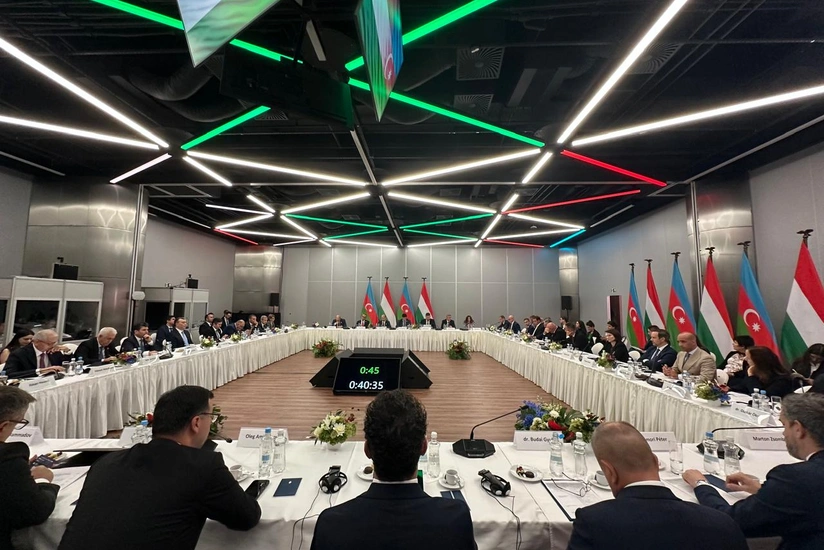New corridors open trade, energy paths for Azerbaijan, Hungary
- 05 September, 2025
- 17:15

The transport corridors and new initiatives such as the Green Energy Corridor announced as part of the Armenia-Azerbaijan peace process, which promise great prospects for the region, open up broad opportunities for cooperation between Azerbaijan and Hungary, Azerbaijan's Finance Minister Sahil Babayev said, Report informs, referring to the ministry.
Babayev made the remark at the 11th meeting of the Joint Commission on Intergovernmental Economic Cooperation held in Budapest, Hungary.
"For Azerbaijan, these corridors align with the strategy of being an important coordination center between East and West, while for Hungary, they open up new opportunities in terms of cooperation in logistics, trade, energy transit, and industry," the minister noted.
In his speech, Babayev talked about the successful results of cooperation in trade, investment, energy, transport, tourism, restoration of Azerbaijan's liberated territories, and humanitarian fields.
Babayev stated that the Azerbaijan-Hungary Intergovernmental Joint Commission plays a decisive role in strengthening economic relations, and the results of the 11th meeting held in Budapest with a very broad agenda will be productive in terms of strengthening cooperation between the two countries in trade, business and investment, energy, labor, employment and social protection, science and education, healthcare, culture, tourism, food security, urban planning, water resource management, and other areas.
The signing of 61 documents between Azerbaijan and Hungary, the formation of a broad legal framework, the increase in trade turnover by 29% in 2024 exceeding $62 million, the implementation of important projects in energy and renewable energy, as well as the active participation of Hungarian companies in Azerbaijan's liberated territories and the expansion of humanitarian ties were assessed as significant achievements at the Joint Commission meeting.
Speaking at the meeting, Péter Szijjártó, Minister of Foreign Affairs and Trade of Hungary, emphasized that cooperation between Azerbaijan and Hungary is based on mutual respect and benefit and covers the most strategic areas. He noted that cooperation with Azerbaijan in the energy sector has also led to a change in Hungary's position in the international energy market, which has no oil and gas resources. Thus, Hungary is currently not only a gas buyer but also a seller of gas to other countries.
Following the meeting, Babayev and Szijjártó signed a protocol summarizing the outcomes of the 11th session of the Joint Commission on Economic Cooperation between the two countries' governments. Additionally, an Action Plan for 2025–2027 was signed between Azerbaijan's Food Safety Agency and Hungary's Ministry of Agriculture. A separate Memorandum of Understanding was also signed by authorized representatives of Azerbaijan Medical University, the University of Pécs (Hungary), Scandens Pharmaceuticals Industries Ltd., and PannonPharma.
Prior to the session, Babayev and Szijjártó held both one-on-one and expanded meetings as co-chairs of the Commission. They discussed the current state of bilateral cooperation and explored opportunities for further development. The agenda for the next Joint Commission meeting-covering trade, economic relations, investment, energy, and other key sectors-was also reviewed in detail.
Speaking at the meeting attended by delegations, Babayev stated that relations between the two countries are consistently expanding in various fields based on the principles of strategic partnership, mutual trust, and respect.
It was noted that Hungarian Prime Minister Viktor Orbán's participation in the Summit of the Organization of Turkic States (OTS) in Shusha and COP29 held in Baku in 2024, as well as President Ilham Aliyev's latest visit to Hungary in May 2025, are clear indicators of the friendship and strategic partnership between the two countries.
The Joint Commission on Economic Cooperation between Azerbaijan and Hungary was established under Article 4 of the bilateral agreement signed in Budapest on February 18, 2008. To date, ten meetings of the Commission have been held.
